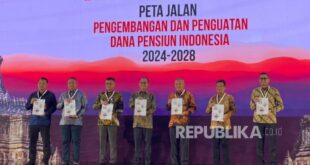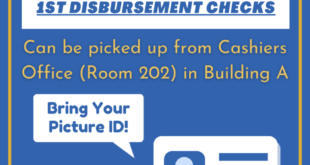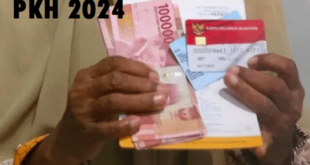Gambaran Umum Program Bantuan Pemerintah 2025

Program Bantuan Pemerintah 2025 direncanakan sebagai upaya strategis untuk mempercepat pemulihan ekonomi nasional pasca pandemi dan mendorong pertumbuhan ekonomi yang inklusif dan berkelanjutan. Program ini akan difokuskan pada peningkatan kesejahteraan masyarakat, khususnya kelompok rentan, serta pengembangan sektor-sektor ekonomi prioritas. Anggaran yang dialokasikan akan lebih tertarget dan terukur, dengan mekanisme pengawasan yang lebih ketat untuk memastikan efektivitas dan transparansi penggunaan dana.
Program ini dirancang untuk mengatasi tantangan ekonomi yang masih dihadapi, seperti pengangguran, kemiskinan, dan kesenjangan ekonomi. Selain itu, program ini juga bertujuan untuk mendorong inovasi, meningkatkan produktivitas, dan menciptakan lapangan kerja baru.
Sektor Penerima Bantuan Utama
Program Bantuan Pemerintah 2025 akan memprioritaskan beberapa sektor utama. Pemilihan sektor ini didasarkan pada analisis kebutuhan dan potensi pertumbuhan ekonomi masing-masing sektor. Prioritas diberikan pada sektor yang memiliki dampak multiplier effect yang tinggi terhadap perekonomian nasional dan mampu menyerap tenaga kerja secara signifikan.
- Sektor Pertanian: Bantuan akan difokuskan pada peningkatan produktivitas pertanian melalui modernisasi teknologi pertanian, peningkatan akses terhadap pembiayaan, dan pengembangan infrastruktur pertanian.
- Sektor UMKM: Program ini akan memberikan dukungan berupa akses pembiayaan, pelatihan kewirausahaan, dan pengembangan pemasaran bagi UMKM. Fokus diberikan pada UMKM yang memiliki potensi ekspor dan mampu menciptakan lapangan kerja.
- Sektor Pariwisata: Bantuan akan difokuskan pada pengembangan destinasi wisata, peningkatan kualitas pelayanan, dan promosi pariwisata. Tujuannya adalah untuk meningkatkan daya saing pariwisata Indonesia di kancah internasional.
- Sektor Infrastruktur: Program ini akan mendukung pembangunan infrastruktur dasar, seperti jalan, jembatan, irigasi, dan energi terbarukan. Pembangunan infrastruktur ini diharapkan dapat meningkatkan konektivitas dan daya saing ekonomi.
- Sektor Kesehatan: Bantuan akan difokuskan pada peningkatan akses dan kualitas layanan kesehatan, khususnya di daerah terpencil dan tertinggal. Program ini juga akan mendukung pengembangan sumber daya manusia di bidang kesehatan.
Perbandingan Program Bantuan Pemerintah
Tabel berikut membandingkan program bantuan pemerintah tahun 2025 dengan program tahun-tahun sebelumnya. Data anggaran bersifat estimasi dan dapat berubah sesuai dengan perkembangan kondisi ekonomi.
| Tahun | Sektor | Jenis Bantuan | Anggaran (Triliun Rupiah) |
|---|---|---|---|
| 2023 | UMKM, Pertanian | Subsidi, Kredit Usaha Rakyat | 150 |
| 2024 | Infrastruktur, Kesehatan | Pembangunan Infrastruktur, Subsidi Kesehatan | 200 |
| 2025 (Proyeksi) | Pertanian, UMKM, Pariwisata, Infrastruktur, Kesehatan | Subsidi, Kredit Usaha Rakyat, Pengembangan Infrastruktur, Peningkatan Layanan Kesehatan | 250 |
Dampak Terhadap Perekonomian Nasional
Program Bantuan Pemerintah 2025 diharapkan dapat memberikan dampak positif yang signifikan terhadap perekonomian nasional. Diharapkan akan terjadi peningkatan pertumbuhan ekonomi, penurunan angka kemiskinan dan pengangguran, serta peningkatan kesejahteraan masyarakat. Program ini juga diharapkan dapat mendorong inovasi, meningkatkan produktivitas, dan menciptakan lapangan kerja baru, sehingga berkontribusi pada peningkatan daya saing ekonomi Indonesia.
Sebagai contoh, peningkatan akses pembiayaan bagi UMKM diharapkan dapat mendorong pertumbuhan usaha mikro, kecil, dan menengah, yang pada akhirnya akan meningkatkan produksi dan penyerapan tenaga kerja. Sementara itu, pembangunan infrastruktur diharapkan dapat meningkatkan konektivitas dan efisiensi logistik, sehingga dapat menurunkan biaya produksi dan meningkatkan daya saing produk Indonesia di pasar internasional.
Ilustrasi Program Bantuan Pemerintah 2025
Ilustrasi program bantuan pemerintah tahun 2025 dapat digambarkan sebagai berikut: Petani di daerah pedesaan menerima bantuan berupa subsidi pupuk dan pelatihan teknologi pertanian modern. UMKM di perkotaan mendapatkan akses kredit usaha rakyat dengan bunga rendah dan pelatihan manajemen usaha. Para pekerja sektor pariwisata mendapatkan pelatihan peningkatan keterampilan dan sertifikasi keahlian. Sementara itu, pembangunan infrastruktur jalan dan jembatan di daerah terpencil meningkatkan konektivitas dan aksesibilitas masyarakat terhadap layanan publik, termasuk layanan kesehatan.
Target penerima manfaat meliputi petani, nelayan, UMKM, pekerja sektor pariwisata, dan masyarakat di daerah terpencil dan tertinggal. Jenis bantuan yang diberikan beragam, mulai dari subsidi langsung, bantuan modal usaha, pelatihan keterampilan, hingga pembangunan infrastruktur.
Program Bantuan Pemerintah 2025, secercah harap di tengah kelam, menawarkan asa bagi negeri. Di antara rinciannya yang panjang, pertanyaan menggantung, mengingatkan kita pada satu program penting: apakah masih ada yang bertanya-tanya, “Bantuan Kip 2025 Kapan Cair?”, seperti yang diulas di Bantuan Kip 2025 Kapan Cair ? Semoga bantuan ini, sebagaimana program lainnya, benar-benar sampai dan meringankan beban.
Program Bantuan Pemerintah 2025, sebuah janji yang semoga tak sirna ditelan waktu.
Program Bantuan Pemerintah 2025, embun pagi harapan di negeri ini, menawarkan secercah cahaya bagi yang terluka. Di antara deretan bantuannya, terdapat Bantuan PIP 2025 , sebuah uluran tangan bagi anak bangsa yang merintih. Semoga program ini, sebagaimana janji fajar, membawa kedamaian dan kesempatan bagi semua. Program Bantuan Pemerintah 2025, semoga tetap menjadi pelita dalam kegelapan, menuntun langkah menuju masa depan yang lebih baik.
Program Bantuan Pemerintah 2025, sebuah harapan di senja usia, menawarkan secercah cahaya bagi mereka yang renta. Di tengah bayang-bayang waktu yang berlalu, pertanyaan besar terpatri: Bantuan Lansia 2025 Kapan Cair? Kabarnya bisa dilihat di sini Bantuan Lansia 2025 Kapan Cair , semoga asa tak sirna. Semoga program ini, selain bantuan lansia, menjangkau lebih banyak lagi jiwa yang membutuhkan, membawa kedamaian di sisa hari-hari mereka, sebuah suntikan semangat di tengah langkah yang mulai terhenti.
Program Bantuan Pemerintah 2025, sebuah harapan di senja usia, menawarkan secercah cahaya bagi mereka yang renta. Di tengah bayang-bayang waktu yang berlalu, pertanyaan besar terpatri: Bantuan Lansia 2025 Kapan Cair? Kabarnya bisa dilihat di sini Bantuan Lansia 2025 Kapan Cair , semoga asa tak sirna. Semoga program ini, selain bantuan lansia, menjangkau lebih banyak lagi jiwa yang membutuhkan, membawa kedamaian di sisa hari-hari mereka, sebuah suntikan semangat di tengah langkah yang mulai terhenti.


